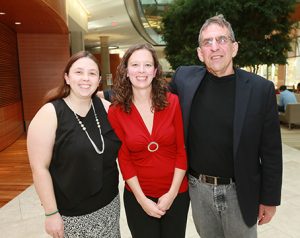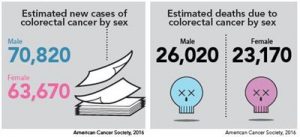
Blood work
Madison, Wisconsin, may have become ground zero in the war against one of the deadliest cancers on the planet.
Local biotech company Exact Sciences made headlines in 2014 when it received FDA approval for a potentially transformative screening test for colorectal cancer. The noninvasive stool-based test, called Cologuard, just may be the best of its kind. This past June the company made news again when Cologuard received a thumbs up from a governmental task force that evaluates and recommends screening tests for detecting hidden disease.
In a lab a few miles away, UW biochemistry professor Mike Sussman likes what he sees. Sussman, along with postdoctoral researcher Melanie Ivancic, is busy taking a different and likely complementary approach.
Support from the Accelerator Program is helping their team develop a blood test for predicting colon cancer early and effectively. They recently achieved a major milestone – this summer they doubled the size of their pilot study and successfully collected serum samples from almost 300 patients.
“What makes our test significant is that it is looking at the final product (protein) and not the blueprint (DNA),” says Ivancic. “The test is done in blood rather than stool, which is likely to increase the compliance rate of testing.”
They plan to analyze each sample using mass spectrometry, searching for a small set of protein biomarkers they believe indicate pre-cancer or cancer. Preclinical results suggest their test could detect the disease at an early stage and may outperform or complement other diagnostic methods, including Cologuard.
